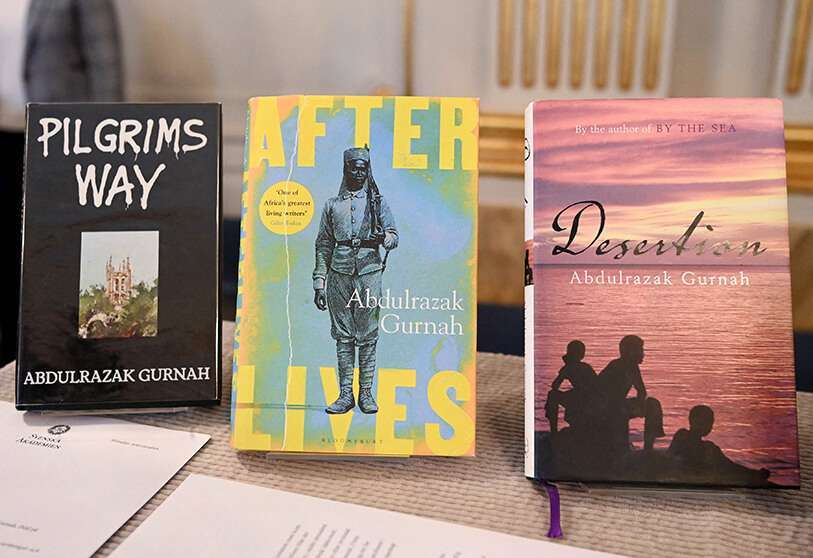Tanzanian writer Abdulrazak Gurnah wins the 2021 Nobel Prize in Literature

Abdulrazak Gurnah has won the 2021 Nobel Prize in Literature, announced Mats Malm, permanent secretary of the Swedish Academy. Of Gurnah's professional career, the jury highlighted his "interest in the effects of colonialism and the fate of refugees and their relationship to cultures and continents".
Gurnah becomes the seventh African to win a Nobel Prize in Literature. "It's a wonderful prize, full of great authors. I'm still trying to get my head around it," he told Reuters.
Gurnah was born in 1948 on the island of Zanzibar, but left Tanzania at the age of 18 to escape the regime of Abeid Karume, the country's first president. Gurnah moved to the UK, where he now lives. Until his retirement he was a lecturer in English and post-colonial literature at the University of Kent, Canterbury.

The novelist has published ten novels, the best known of which are "Paradise", "On the Shore" and "Precarious Silence". Gurnah began writing at the age of 21, shortly after arriving in the UK as a refugee. It is precisely this theme, the plight of refugees, that runs through Gurnah's work. "Precarious Silence', for example, was published in 1998 and is about a Zanzibari name who has been living in the UK for 20 years, just like the author. It deals with emigration and cultural identity. The same situation is presented in "On the Shore", where a man leaves his native Tanzania to settle as a refugee in a small English seaside town.
Another recurring theme in Gurnah's novels is colonialism and its consequences, as can be seen in "Paradise". "His work offers a vivid and very accurate portrait of another Africa not well known to many readers: the coastal area of the Indian Ocean, a region marked by slavery and repression by the various colonial regimes and powers in the area," says Ander Olsson, chairman of the Swedish Academy's Nobel Committee.

"Gurnah's dedication to truth and aversion to oversimplification are striking, which can make him bleak and uncompromising, while at the same time he follows the fate of the people with great compassion and unwavering commitment," he says.
Moreover, as Olsson stresses, Gurnah's work "departs from stereotypical descriptions and opens our gaze to a culturally diverse Africa unknown to many in other parts of the world".
Her latest novel, "Afterlives", again focuses on Africa, while also addressing violent German colonialism. According to Ethiopian-American writer Maaza Mengiste, the book "explains the generational effects of colonialism and war, and asks us to consider what remains after so much devastation.

Among the nominees for the prize were Margaret Atwood, the celebrated author of "The Handmaid's Tale", Haruki Murakami, Michel Houellebecq, Lyudmila Ulitskaya, Ngugi wa Thiongó and Javier Marías. Previous winners were the Polish novelist Olga Tokarczuk and the American poet Louise Glück.










